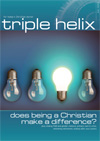This title intrigued me. The usual solution to stress is: do less, delegate, prioritise and learn to say no. Middleton acknowledges the need to step back, but part of the solution is to do more: eg keep an anxiety diary. I am sceptical that this is possible in an acute phase of stress, and it isn't clear whether such tools were for prevention, recovery or analysis, nor whether they are solo activities or require a therapist. The first section describes backgrounds to stress; its accessible style is suitable for lay readership. However, despite occasional reference to literature, opinion tends to be stated as fact and Middleton makes no distinction between stress and its causes. Anxiety and stress seem to be used synonymously. This imprecision is unwise since the lay understanding of stress is variable, and there are multiple types of anxiety.
The second section is better. Middleton helpfully analyses personality types in relation to stress, and makes a good case for the effect of childhood experiences. The chapter on 'emotional kindling' offers a helpful description of adverse thinking patterns. This part was for me was the strongest and most interesting part of the book.
Does the book do what it says on the cover? Although a reasonable introduction it is best not considered as a self-help guide since the recommended exercises are only briefly sketched out.
































